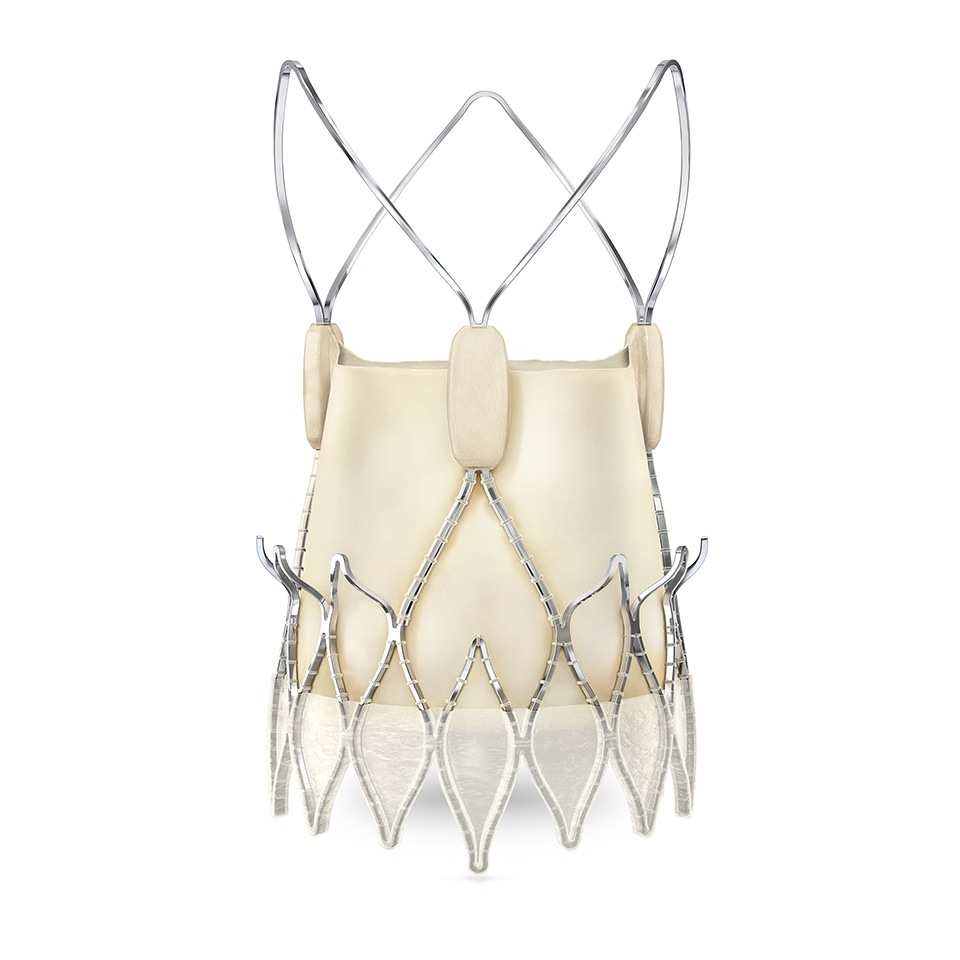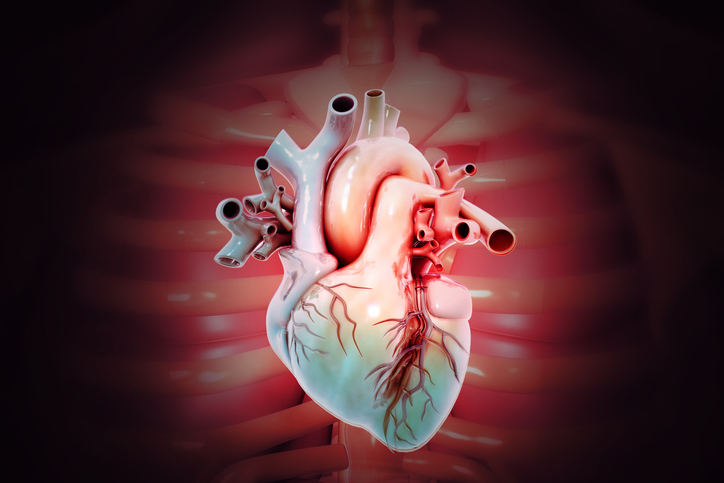
A self-expanding transcatheter aortic valve system was not non-inferior to a balloon-expandable transcatheter aortic valve, a new study in The Lancet suggests.
The study compared the self-expanding ACURATE neo aortic valve system, used during transcatheter aortic valve replacement (TAVR), to a standard balloon-expandable SAPIEN 3 valve. The randomized non-inferiority study included 739 patients screened from 5,132 between 2017 and 2019. Patients (who were at high risk for surgery) underwent transfemoral TAVR for symptomatic aortic stenosis in 20 European centers. The study participants were randomly assigned 1:1 to receive either ACURATE neo or the SAPIEN 3 valve, stratified by Society of Thoracic Surgeons Predicted Risk of Mortality (STS-PROM) risk category. The primary study endpoint was a composite safety and efficacy endpoint including all-cause death, any stroke, life-threatening or disabling bleeding, major vascular complications, coronary artery obstruction requiring intervention, acute kidney injury, rehospitalization for valve-related symptoms or congestive heart failure, valve-related dysfunction requiring another procedure, moderate or sever prosthetic valve regurgitation, or prosthetic valve stenosis with 20 days of procedure. The non-inferiority of ACURATE neo was comared to SAPIEN 3 using the intention-to-treat population with a risk-difference margin of 7.7% for the primary endpoint.
According to the study results, the median STS-PROM score was 3.5%. The authors reported that within 30 days of the procedure, the primary study endpoint occurred in 87 patients (24%) in the ACURATE neo group and in 60 patients (16%) in the SAPIEN 3 group. This meant that the ACURATE neo system did not achieve the specified non-inferiority threshold (absolute risk difference, 7.1%; P=0.42). A secondary analysis of the primary endpoint revealed that the SAPIEN 3 valve was superior to ACURATE neo (P=0.0156). The groups did not differ in terms of all-cause death, while acute kidney injury and moderate to severe prosthetic aortic regurgitation was more commonly reported in the ACURATE neo group.
“Transcatheter aortic valve replacement with the self-expanding ACURATE neo did not meet non-inferiority compared to the balloon-expandable SAPIEN 3 device in terms of early safety and clinical efficacy outcomes,” the researchers wrote in their abstract. “An early composite safety and efficacy endpoint was useful in discriminating the performance of different TAVR systems.”
ICYMI: Safety & efficacy of self- vs balloon-expandable bioprosthesis for TAVR in symptomatic severe aortic stenosis (SCOPE 1): a randomised non-inferiority trial
Free to read w/ reg to Sun Oct 6 https://t.co/ADUKnh4G4P #LancetCardiology #TCT2019 https://t.co/UemyVHGdJg pic.twitter.com/fzy2NRtStF
— The Lancet (@TheLancet) September 30, 2019
Disappointing results for ACURATE neo vs S3; non inferiority not met. @stepoco @AndreasRck2 @mitsis_andreas #taviwars https://t.co/WeQnTCEFAN
— Cróchán O'Sullivan (@coscardio) September 27, 2019
Need there be room at the top for more #TAVR devices? The Scope I Trial Results @TCTConference #TCT2019 Simultaneous publication in @TheLancet https://t.co/s5USflCOZ8 #cardiotwitter @crfheart pic.twitter.com/vhmJzYwU86
— David L. Fischman (@fischman_david) September 27, 2019







 © 2025 Mashup Media, LLC, a Formedics Property. All Rights Reserved.
© 2025 Mashup Media, LLC, a Formedics Property. All Rights Reserved.